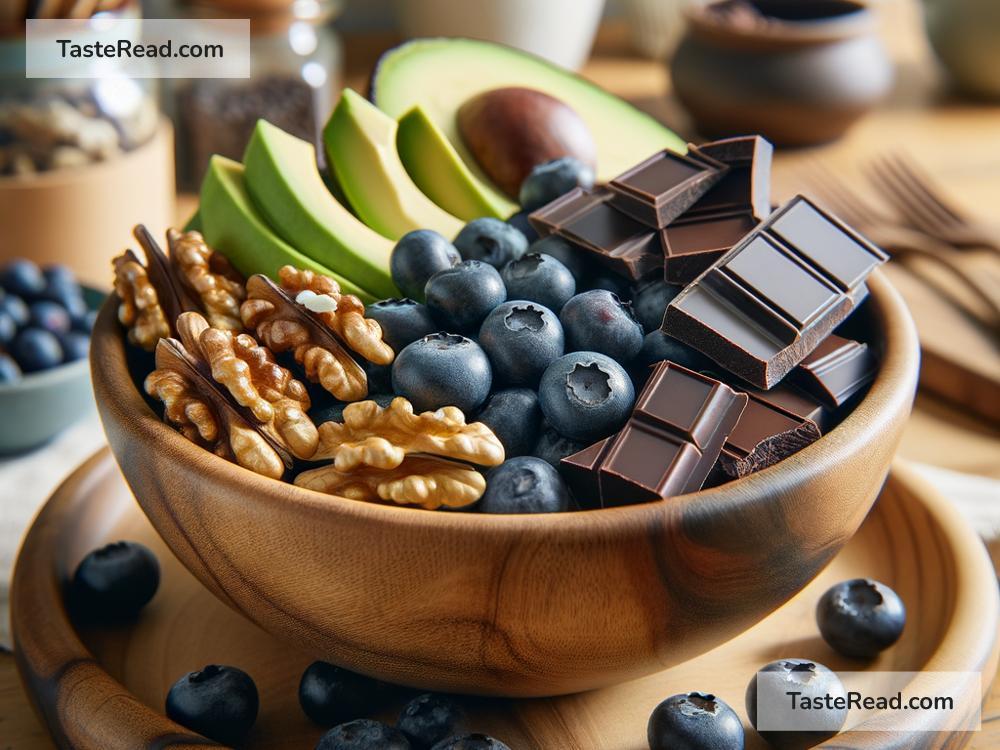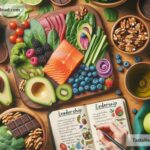Foods for Improving Language Skills: What to Eat for a Sharper Brain
Did you know that the food you eat can impact how well your brain works? Our brains are like engines—they need the right fuel to perform at their best. If you’re trying to learn a new language or sharpen your speaking, listening, or writing skills, eating healthy foods can make a big difference. In this blog, we’ll talk about some simple foods that can help improve language skills and overall brain health.
Why Food Matters for the Brain
The brain is the most powerful organ in your body. It controls how you think, feel, and communicate. For it to work well, you need to give it nutrients like vitamins, minerals, antioxidants, and healthy fats. These nutrients support memory, focus, problem-solving, and even creativity—the things we use when learning or using language.
When your brain is not getting enough fuel, it’s harder to focus, process new words, or recall grammar rules. So, choosing the right foods can energize your mind and boost your ability to learn and express yourself.
Brain-Friendly Foods for Better Language Skills
Here are some of the best foods you can eat to boost brain power, making learning and communication easier:
1. Fish High in Omega-3 Fatty Acids
Fish like salmon, mackerel, and sardines are rich in omega-3 fatty acids, which are essential for brain health. Omega-3s improve memory, focus, and even mood—all important for language learning. They help your brain connect ideas, form sentences, and recall information more effectively.
If you’re not a fan of fish, you can try plant-based sources of omega-3s, like flaxseeds, chia seeds, and walnuts.
2. Blueberries
Blueberries are known as “brain berries.” Packed with antioxidants, they protect your brain and improve communication between brain cells. Eating blueberries can boost memory, mental sharpness, and focus—all of which help with language processing. Plus, they taste great in smoothies, oatmeal, or as a snack!
3. Leafy Greens
Spinach, kale, and other leafy greens are rich in vitamins like vitamin K and folate. These nutrients promote better brain function and protect against memory loss. When you’re studying vocabulary or practicing grammar rules, leafy greens can keep your brain sharp. You can add them to salads, soups, or even green smoothies.
4. Eggs
Eggs are a great source of choline, a nutrient that helps produce neurotransmitters needed for communication between brain cells. This means eating eggs can help with mental clarity and focus. A scrambled egg breakfast or a hard-boiled egg snack can give you the energy to tackle language practice.
5. Nuts and Seeds
Nuts like almonds, walnuts, and cashews, as well as seeds like pumpkin seeds and sunflower seeds, are superfoods for your brain. They contain healthy fats, vitamin E, and antioxidants, which improve memory and learning ability. Munch on a handful of nuts or add seeds to your yogurt or salads for a brain boost.
6. Dark Chocolate
Good news for chocolate lovers! Dark chocolate, especially with a high cocoa content (70% or more), is full of flavonoids, which improve brain function. Eating dark chocolate in moderation can help with concentration and stimulate creativity—important for thinking in a new language or putting together meaningful sentences.
7. Avocados
Avocados are rich in healthy fats that support brain function. They also improve blood flow to the brain, helping you stay focused and responsive during conversations or study sessions. Spread avocado on toast or mix it into a salad for a smart snack.
8. Whole Grains
Foods like oatmeal, quinoa, and brown rice are excellent sources of energy for your brain. During long language practice sessions, whole grains can keep your mind alert and prevent fatigue. Swap white bread for whole-grain bread to fuel your brain for the day.
9. Turmeric
Turmeric contains an active ingredient called curcumin, which has powerful anti-inflammatory and antioxidant properties. It boosts brain cell growth and improves memory. You can add a pinch of turmeric to soups, stir-fries, or even tea for extra brainpower.
10. Green Tea
Green tea is a rich source of antioxidants and caffeine, which can enhance focus and alertness. It also contains an amino acid called L-theanine, which promotes relaxation while keeping the mind sharp—perfect for learning languages without feeling stressed.
A Balanced Diet Goes a Long Way
While these foods are great for your brain, the key is balance. Include a variety of fresh fruits, vegetables, lean proteins, and whole grains in your daily meals. Avoid overly processed foods and sugary snacks, which can make your brain sluggish and reduce focus.
Pair your healthy eating habits with regular exercise, proper sleep, and stress management. These lifestyle choices work together to improve brain health, making it easier for you to learn new words, understand grammar, and speak clearly.
Conclusion
Healthy food doesn’t just keep your body strong—it’s also your brain’s best friend. Whether you’re trying to master a new language or get better at expressing yourself, the right nutrients can help your brain work better.
Try adding omega-3-rich fish, antioxidant-rich blueberries, or brain-boosting eggs to your diet. Over time, you’ll notice improvements in your memory, focus, and language ability. So next time you’re planning your meals, think about what will fuel not just your body—but your brain, too!


